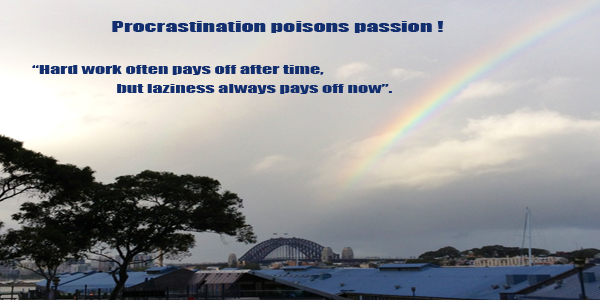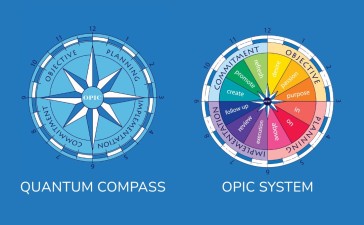So, have you been procrastinating?
Do you have an important task that you have put off for a while?
Do you hear yourself saying “I’ll do it tomorrow”?
Do you always wish that you have more time?
Do you find that everything in life and business is too overwhelming?
One of the biggest road blocks most of us face in our Business LifeStyle is procrastination.
It’s one of the main issues that we help so many of our clients with too…
That’s why our motto at ArtSHINE is:
“Make Tomorrow Today”
You have the power to decide how you spend your time.
You have choices:
- You can toss the procrastination habit away, and
- Replace it with the habit of taking action,
or
- You can stay exactly where you are right now.
Procrastination is not a disease, nor is it a hereditary condition. Procrastination is a learnt behaviour.
And behaviour that you’ve learnt is one that you can unlearn too.
We all know that everyone falls into the procrastination zone from time to time.
Which type of procrastinator do you think you are?
- The meticulous over-planner – The over-thinker with an obsessively organised mind who is unable to get anything done because they’re paralysed by information overload and can’t decide on a single course of action.
- The grudge holder – Something’s happened to the grudge holder in the past that they just can’t let go of. They’re holding grudges and they’re unable to move on.
- The rebel – The rebels won’t commit to process or systems, and they dislike routine. “It stifles my creativity,” they say. Nothing happens because they can’t get themselves organised to actually do anything.
- The fearful – The fearful are worried about failure and disapproval. They’re unable to step out of their comfort zone because they’re afraid of how people see them.
These procrastinator types can also be linked to some of these feelings too:
- Self Doubt – Second-guessing decisions and delaying action. Feeling insecure and self-critical. And although being eminently competent, not always feel confident. Procrastination means that we can avoid that unconfident feeling.
- Anxiety – Avoiding tasks that are imagined to cause distress, or that may cause discomfort. Procrastinating means that we can avoid that anxious feeling altogether.
- Guilt – Leaving tasks unfinished creates feelings of guilt. So, not starting tasks means that there’s no chance to feel those guilty feelings when the job remains undone.
Procrastination can also become a habit, it can become a day to day routine. The mind becomes an autopilot and when any challenging tasks arise your head chatter will respond with things like; “It’s too hard, and too much work”, Why to bother”. and “There’s no time, I’ll do it later”.
Do any of those excuses sound familiar?
So, which type of procrastinator are you?
Being honest with yourself means that you can take the appropriate steps to stop procrastinating.
Tune in next week and we’ll share some useful tips to beat procrastination.






10 Comments